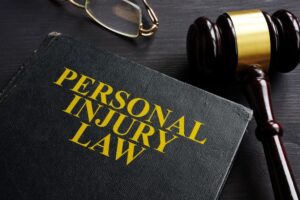
If you’re receiving letters after an accident, you may be encountering lawyer solicitation. Attorneys might send letters seeking to represent you in your personal injury claim. However, lawyers can only initiate direct contact when explicitly requested by the victim.
You have the right to choose your legal representation, so take your time to make an informed decision. Consult a trusted personal injury lawyer in Atlanta to discuss the details of your case and how to recover compensation after an accident.
Understanding Legal Solicitation
Legal solicitation refers to the process by which attorneys actively engage potential clients in need of legal services. This can involve various communication methods, such as written letters, phone calls, advertisements, or in-person meetings.
The primary goal of legal solicitation is to inform individuals about their legal rights and the services available to them after being injured in an accident. However, legal solicitation is governed by strict ethical and legal guidelines to prevent misleading or aggressive practices.
Is Lawyer Solicitation Illegal?
Lawyer solicitation can be illegal and is subject to strict regulations that vary by jurisdiction. However, many states allow attorneys to solicit clients through written communications or advertisements, provided they adhere to specific ethical guidelines.
Get the strong arm
What to Do if You Get Letters After an Accident
If you receive an unsolicited letter of legal solicitation, take a moment to breathe and remember that you’re not obligated to make immediate decisions. These letters can be unexpected and may come from individuals or firms trying to offer services related to your personal injury case.
Steps to take when receiving letters after an accident:
- Verify legitimacy: Research the law firm or attorney, checking their credentials, reviews, and any disciplinary records.
- Beware of aggressive tactics: Be cautious of letters that use aggressive marketing or misleading claims.
- Avoid sharing personal information: Don’t provide any personal information or details about your case in response to unsolicited letters.
- Keep records: Maintain a record of all solicitation letters and communications for your reference.
- Consult trusted sources: If you’re considering legal representation, consult a trusted attorney for guidance.
How you respond to unsolicited letters of legal solicitation can impact your personal injury case. If you feel rushed or pressured to provide information, you may accidentally share details that negatively affect your situation. Instead, take your time to carefully evaluate the correspondence before making any decisions.
Types of Written Legal Solicitation
Written legal solicitation encompasses various forms of communication that attorneys use to reach potential clients. These solicitations can take the shape of letters, postcards, or even brochures and offer legal services during challenging times.
Permissible Written Solicitation
Lawyer advertising is permitted as long as it complies with the ethical standards established by the American Bar Association (ABA) and individual state bar regulations. These ads must not contain false or deceptive information or imply guaranteed outcomes.
Attorneys are also allowed to distribute general, non-specific advertisements to the public or particular groups. For example, they may target individuals seeking specific legal services, provided they follow ethical guidelines. This lets lawyers market their services while ensuring that prospective clients receive accurate and honest information.
Prohibited Written Solicitation
Most jurisdictions impose strict regulations to protect individuals from misleading or aggressive marketing tactics. For example, attorneys generally can’t solicit clients after an accident, especially within a specified timeframe.
Any written solicitation that contains false or deceptive statements, misrepresents the lawyer’s qualifications, or uses coercive language is prohibited. Lawyers must also avoid contacting individuals who have previously expressed a desire not to receive such communications.
Regulations on Legal Solicitation
Lawyer solicitation is prohibited in many instances, particularly when an attorney directly reaches out to accident victims or their families without their consent. The American Bar Association (ABA) Model Rule 7.3 specifies how lawyers should approach potential clients, stating that attorneys should not initiate direct contact unless explicitly requested by the victim.
In addition to ABA guidelines, various states have their own regulations governing legal solicitation. These state laws are designed to maintain ethical practices among attorneys and may impose further limitations on how lawyers can advertise or reach out to prospective clients.
For example, Georgia once had a statute, OCGA § 16-10-95, addressing barratry, which involves instigating unnecessary lawsuits. While this law was repealed in 2006, other ethical and legal standards continue to apply to similar forms of misconduct. This makes it all the more important to consult a lawyer if you suspect legal solicitation.
Call a Personal Injury Lawyer You Trust Today
At John Foy & Associates, we understand the challenges you may face following an injury, and we provide genuine legal support. Our personal injury attorneys treat you as an equal partner in the legal process, ensuring that you feel heard and respected.
Contact us today for a free consultation. We will discuss your case in detail and answer any questions you may have.
404-400-4000 or complete a Free Case Evaluation form





